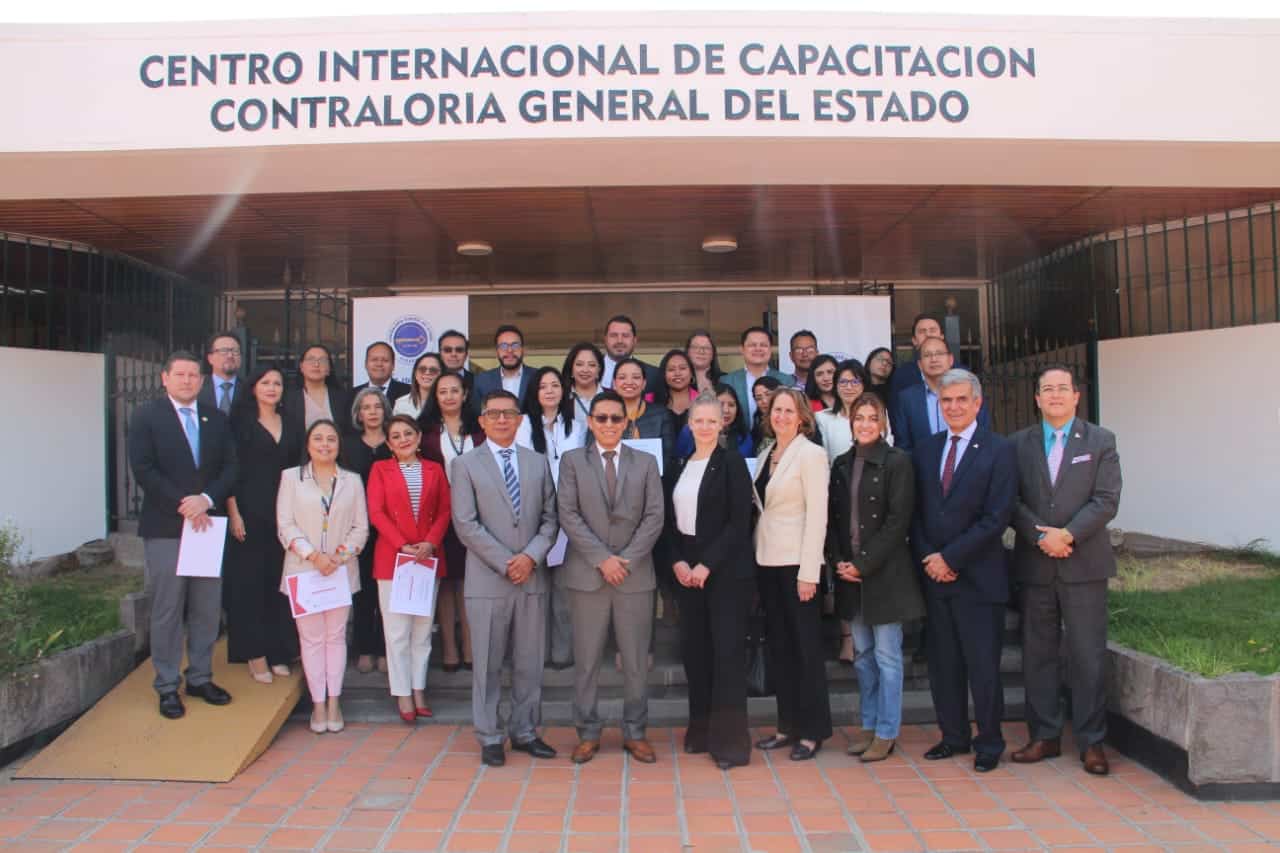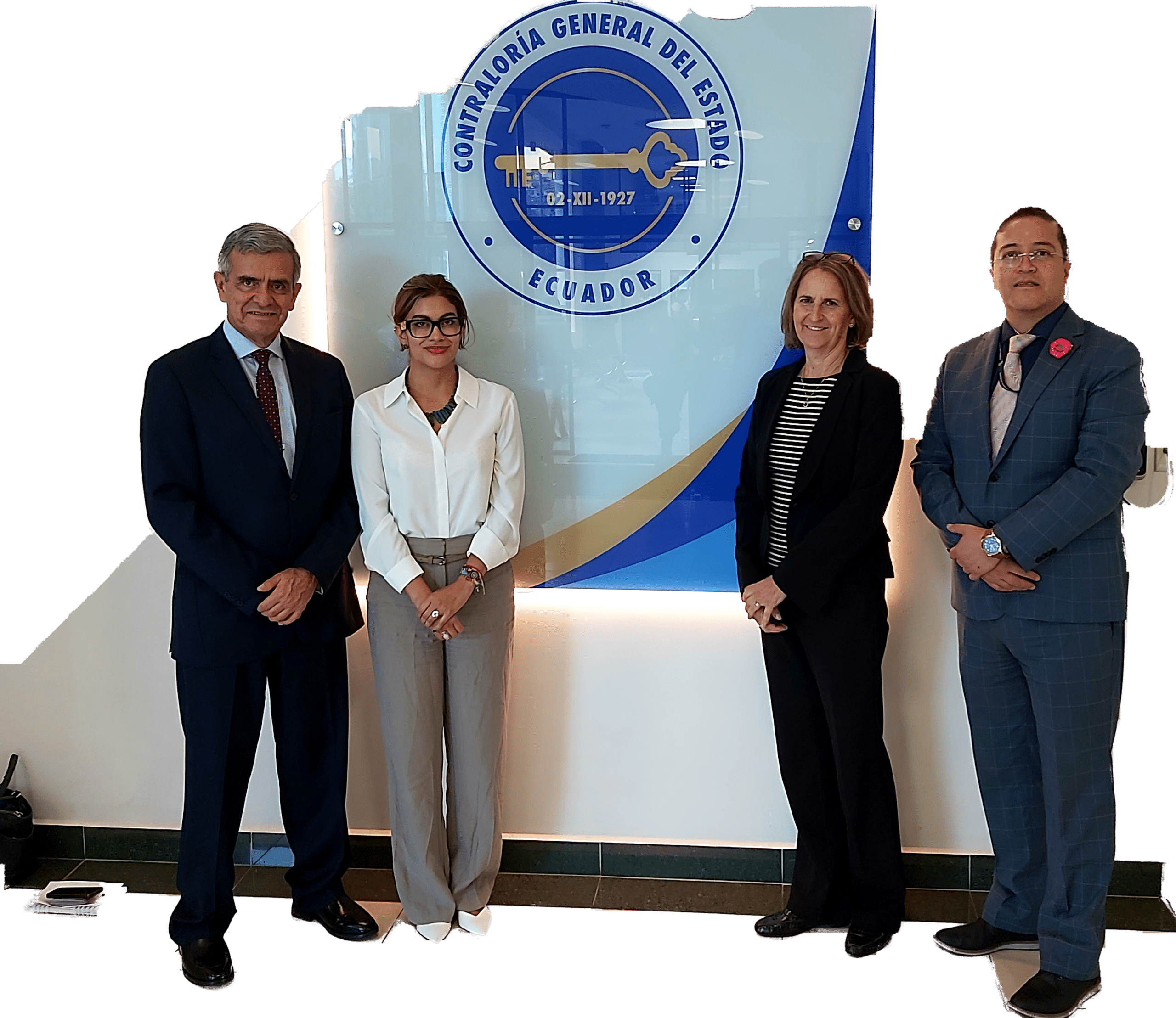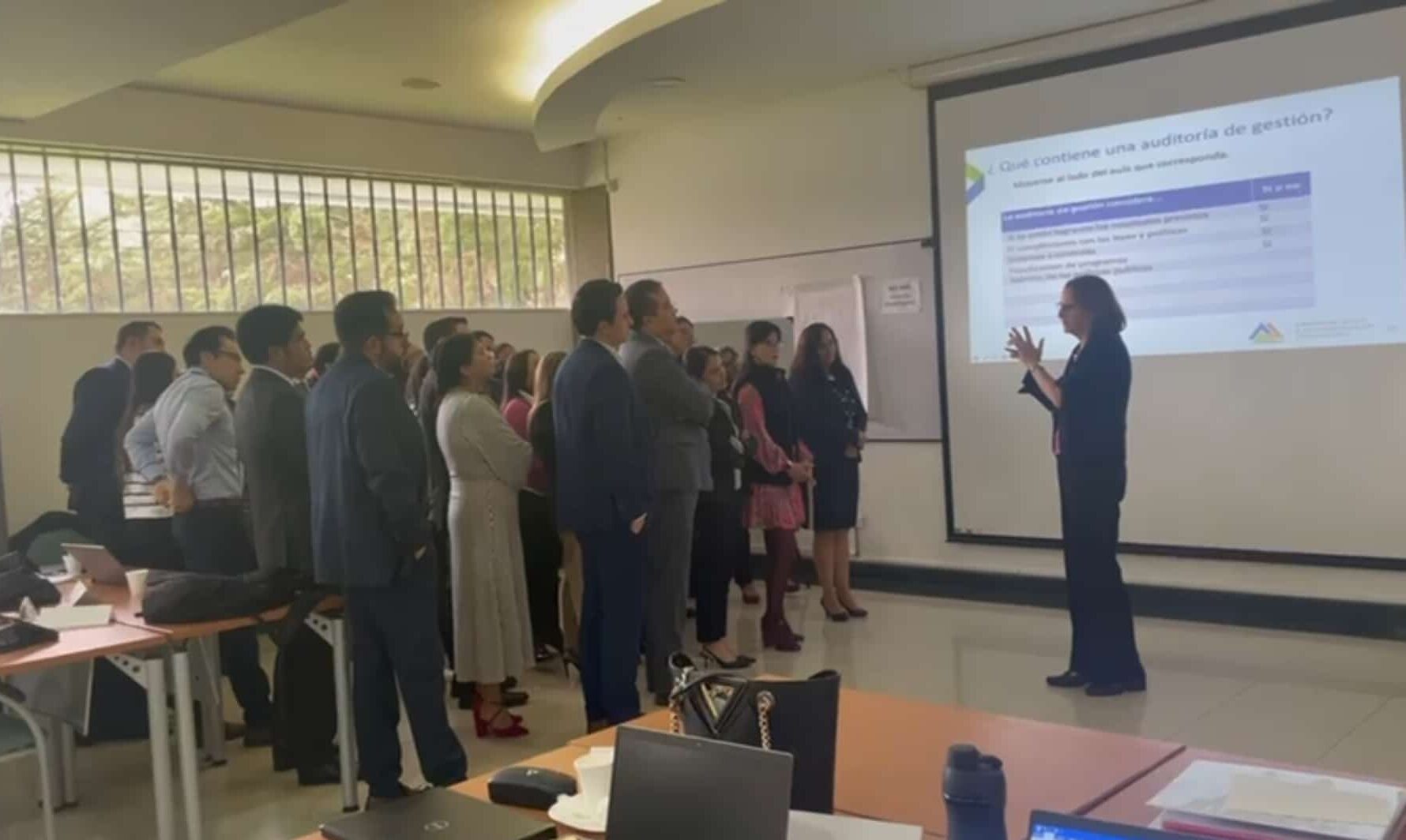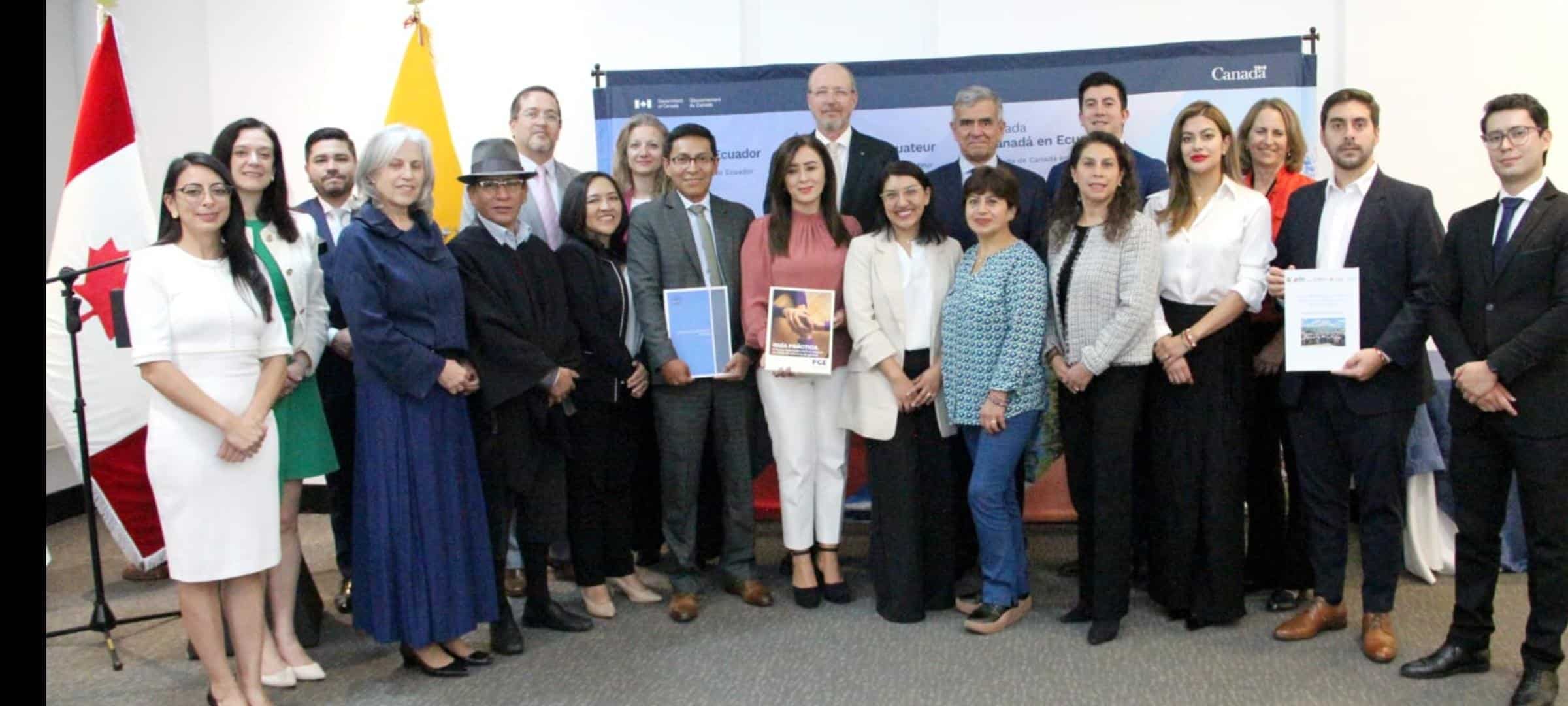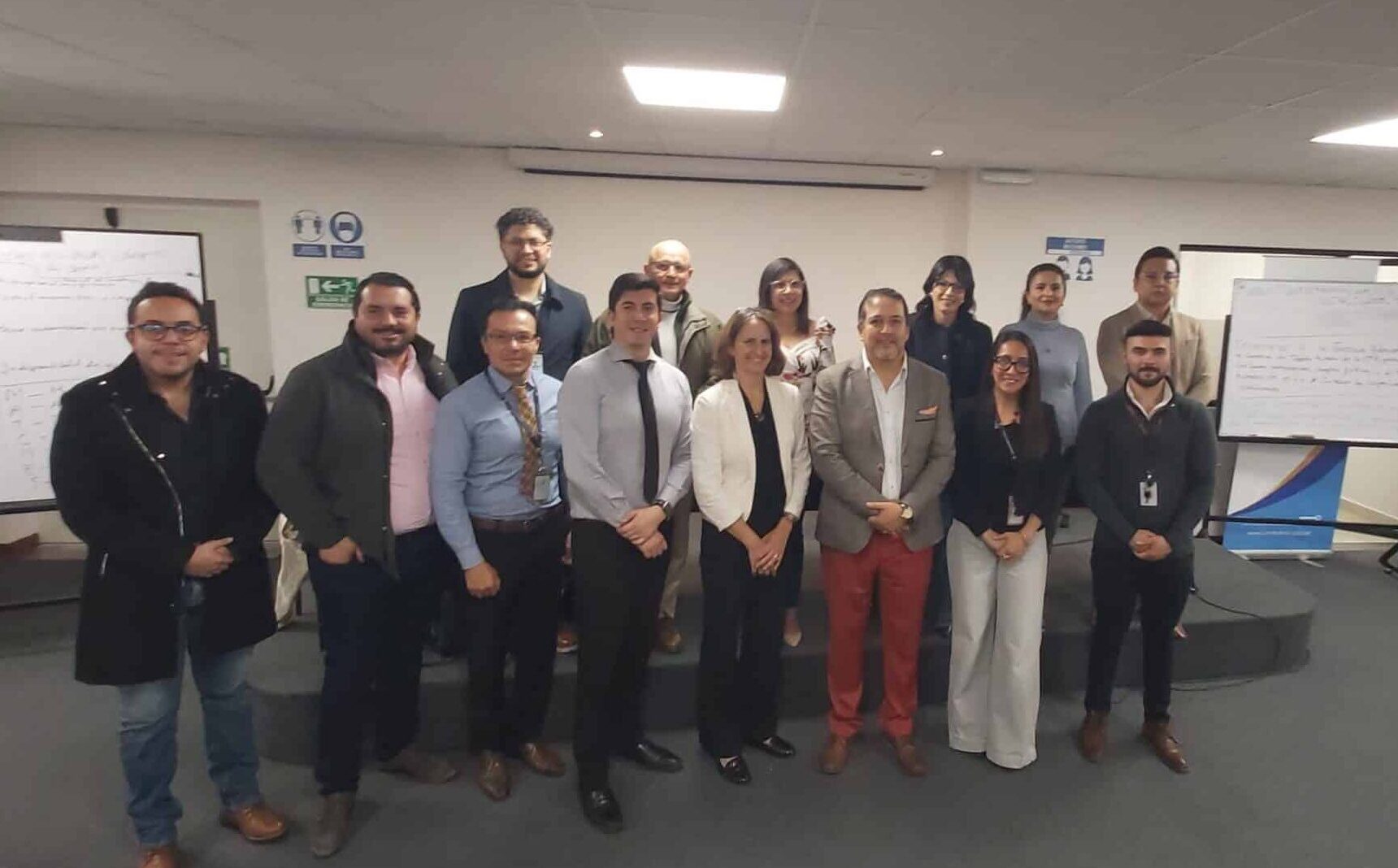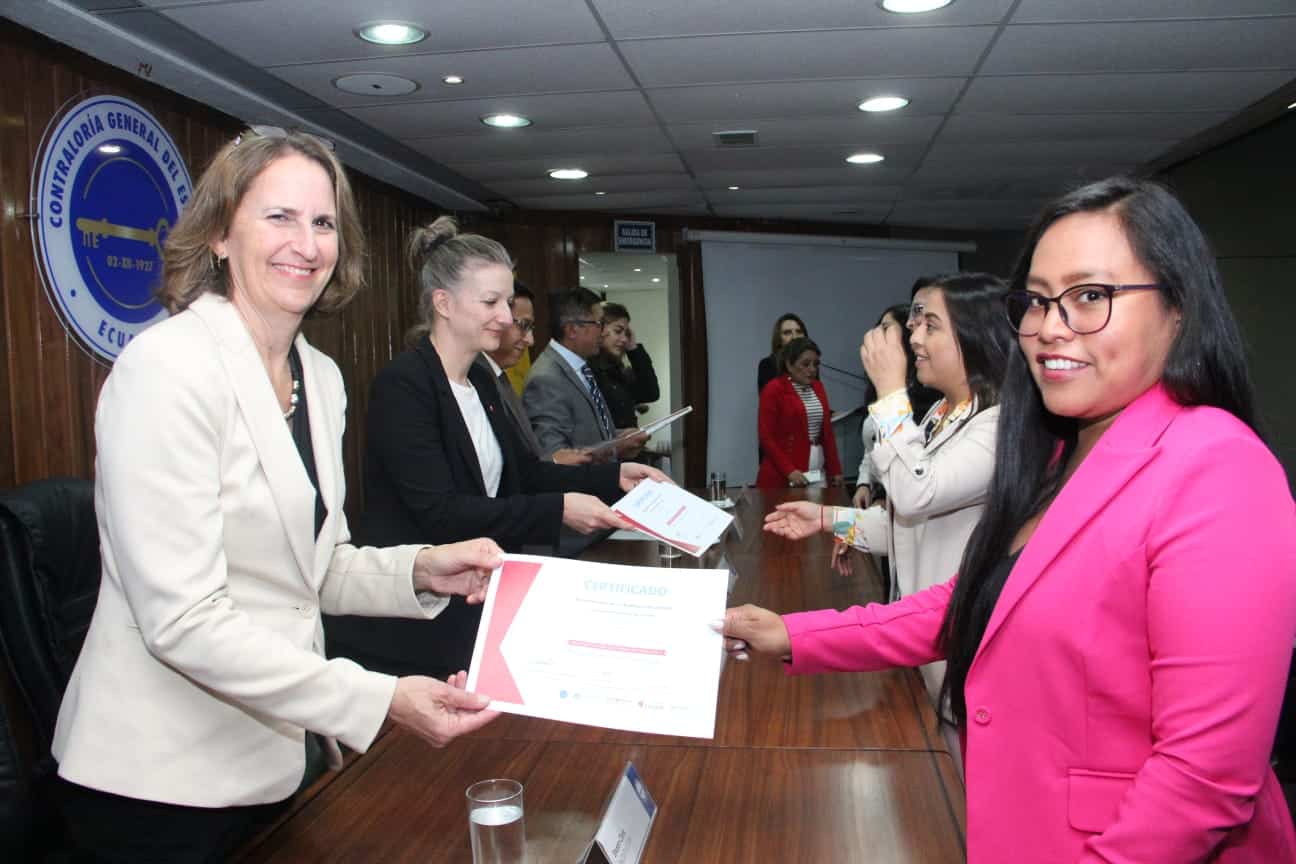
The Technical Assistance Partnership – Expert Deployment Mechanism (TAP-EDM) is working with the Government of Ecuador’s Office of the Controller General (Auditor General) to carry out a Performance Audit. The initiative has helped strengthen the Auditor General’s control and judgment management in performance auditing and enhanced the training and education of the auditors.
This is TAP’s Performance Audit Expert, Sharon Clark’s account of her experience with the team at the Canadian Audit and Accountability Foundation (CAAF).
Canadian Audit and Accountability Foundation Works with the Government of Ecuador to Build Capacity in Performance Audit
By Sharon Clark ([email protected] )
The Canadian Audit and Accountability Foundation is proud to be collaborating with the Ecuador Office of the Controller General (“SAI Ecuador”) to strengthen its capacity to conduct performance audits. The goal is to align performance audit practices with the ISSAIs, thereby improving transparency, efficiency, and accountability in the administration of resources and public policies in Ecuador.
The project is delivered through the Technical Assistance Partnership – Expert Deployment Mechanism (TAP-EDM), with funding from Global Affairs Canada and implemented by Alinea International. TAP-EDM projects are carried out by Canadian experts in countries worldwide, based on the needs identified by national government partners in developing nations. Through a collaborative, gender-responsive, and inclusive approach, TAP projects offer opportunities for learning, partnership, and discovery for Canadians and partners alike.
The CAAF team was a great fit for this short-term technical assistance because we have staff and associates fluent in Spanish and highly experienced in capacity building in Latin American SAIs.
Ecuador’s capital, Quito, at 2,850 meters altitude, can literally take your breath away. Ecuador’s volcanoes, flora, and fauna are renowned worldwide. The country has experienced significant changes over the past 20 years, including recent energy shortages, rising rates of violence, and political instability. In 2024, the worst drought in 60 years caused blackouts and electricity rationing nationwide. Improving citizen security and securing energy supply in the short term are therefore vital priorities.
Our work started with a visit to Ecuador to meet the SAI in January 2025. Our aims were to understand how the SAI is organised and the types of audits they currently carry out, and to identify the most important aspects to focus on in our training and mentoring. We gained a better understanding of the challenges faced by the SAI – including the drive to improve its reputation after several difficult years. We met with representatives from all audit sections, listened to presentations on previous audits, and were very impressed by the thoroughness of the work and the intelligence of the audit staff.
We returned to Quito in March 2025 to deliver five days of training on performance audit methodology and a two-day train-the-trainer workshop. The training was very well received. However, questions remained about how to put it into practice in a challenging context. We held several virtual sessions with the group to support work on updating their performance audit manual and starting pilot performance audits. We made a final visit in June to provide in-person support and feedback on planning for the two pilot performance audits, which focus on thermal energy stations and legal aid for vulnerable populations.
SAI Ecuador operates under a jurisdictional model, enabling it to impose sanctions such as fines or suspension of pay for responsible managers when negative findings arise. This can hinder the development of relationships with auditees, which are often important for securing buy-in to audit findings and recommendations. However, it clearly establishes who is responsible and what consequences may follow if programmes are not executed in an economical, efficient, and effective manner. Ecuador does not yet have a legislative committee responsible for ensuring the implementation of audit recommendations, so this task falls to the SAI itself.
The project concluded on 30 June 2025, with an updated performance audit manual and the planning phase for pilot audits finished. We look forward to the possibility of working with SAI Ecuador again in the future!
